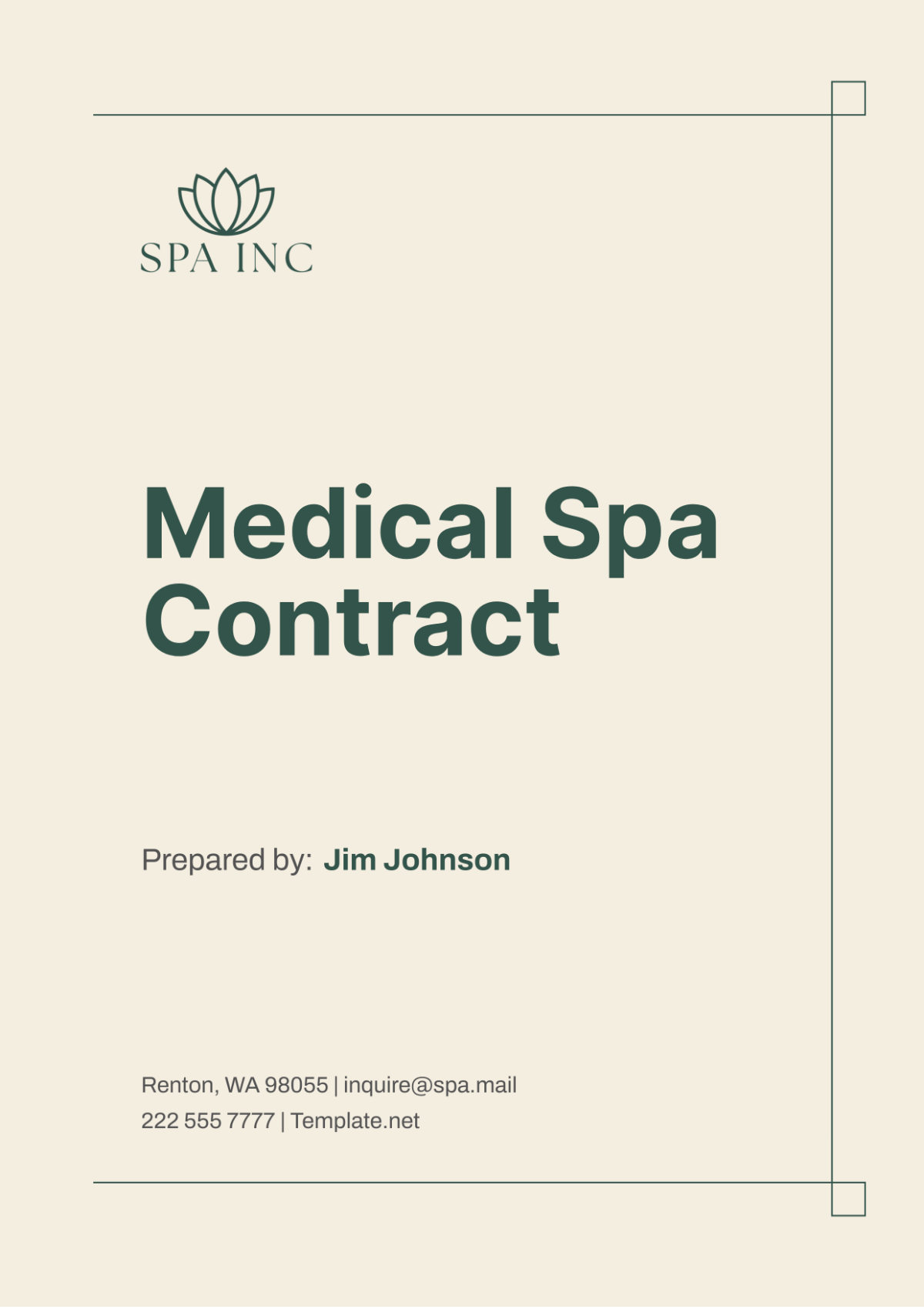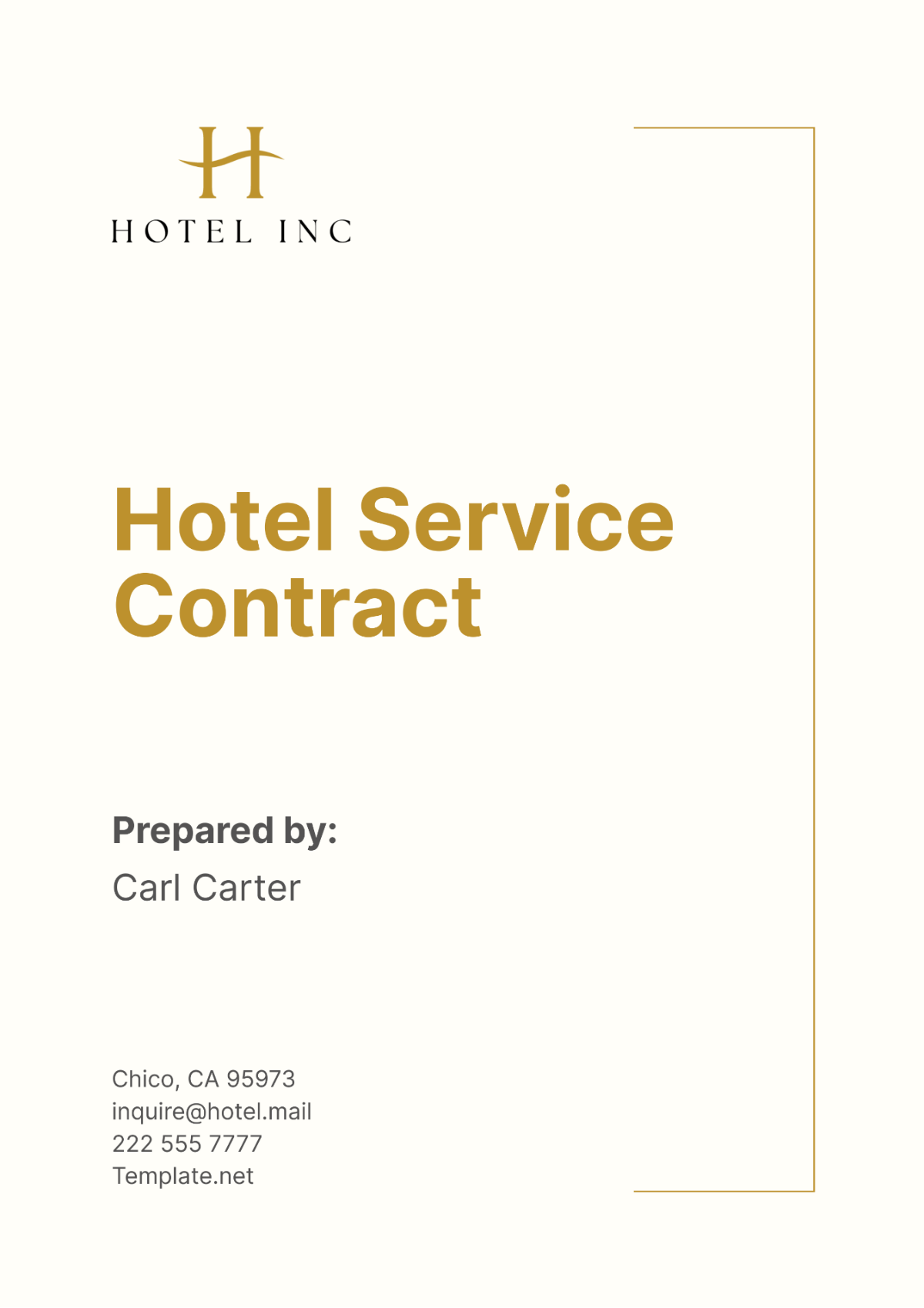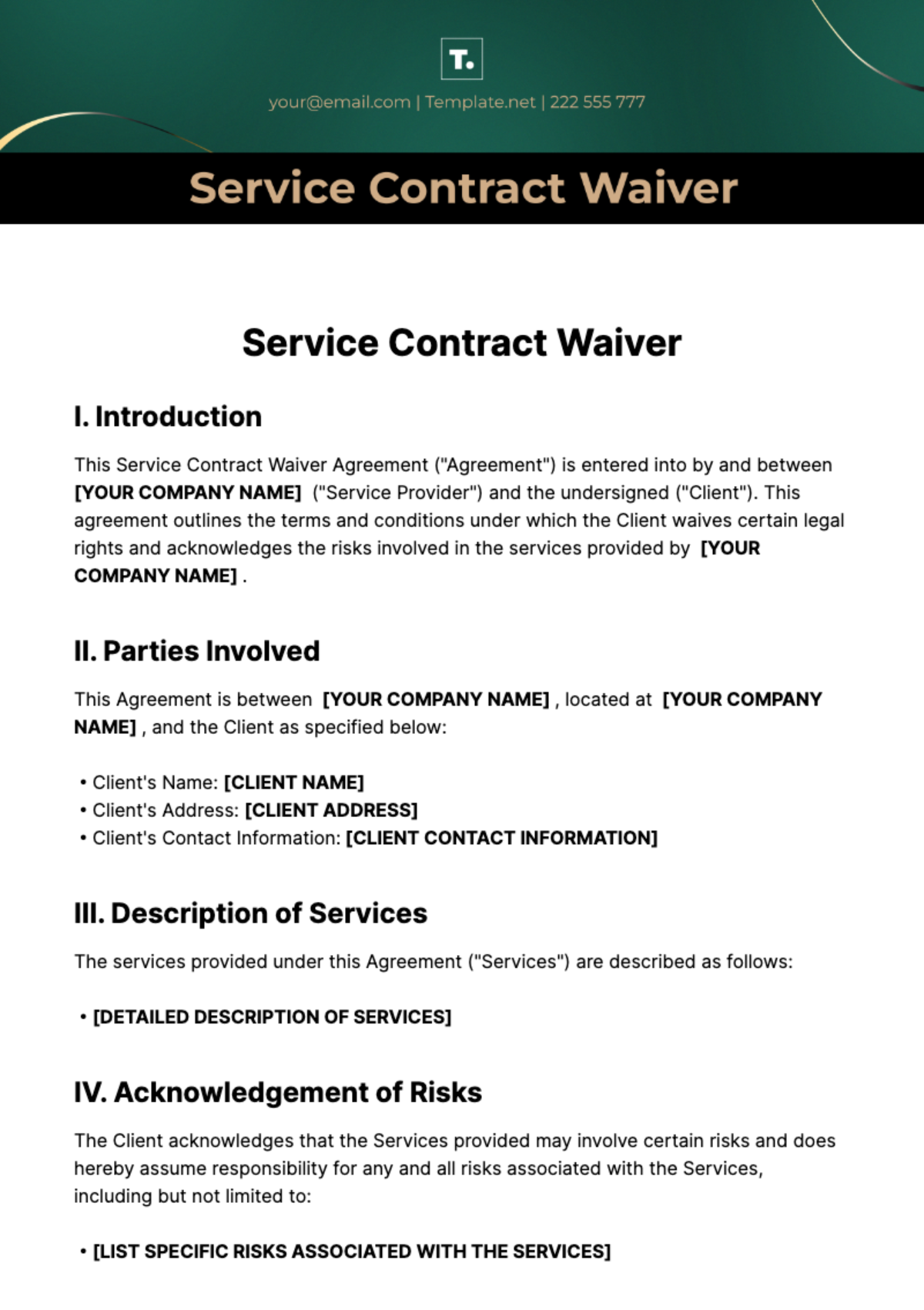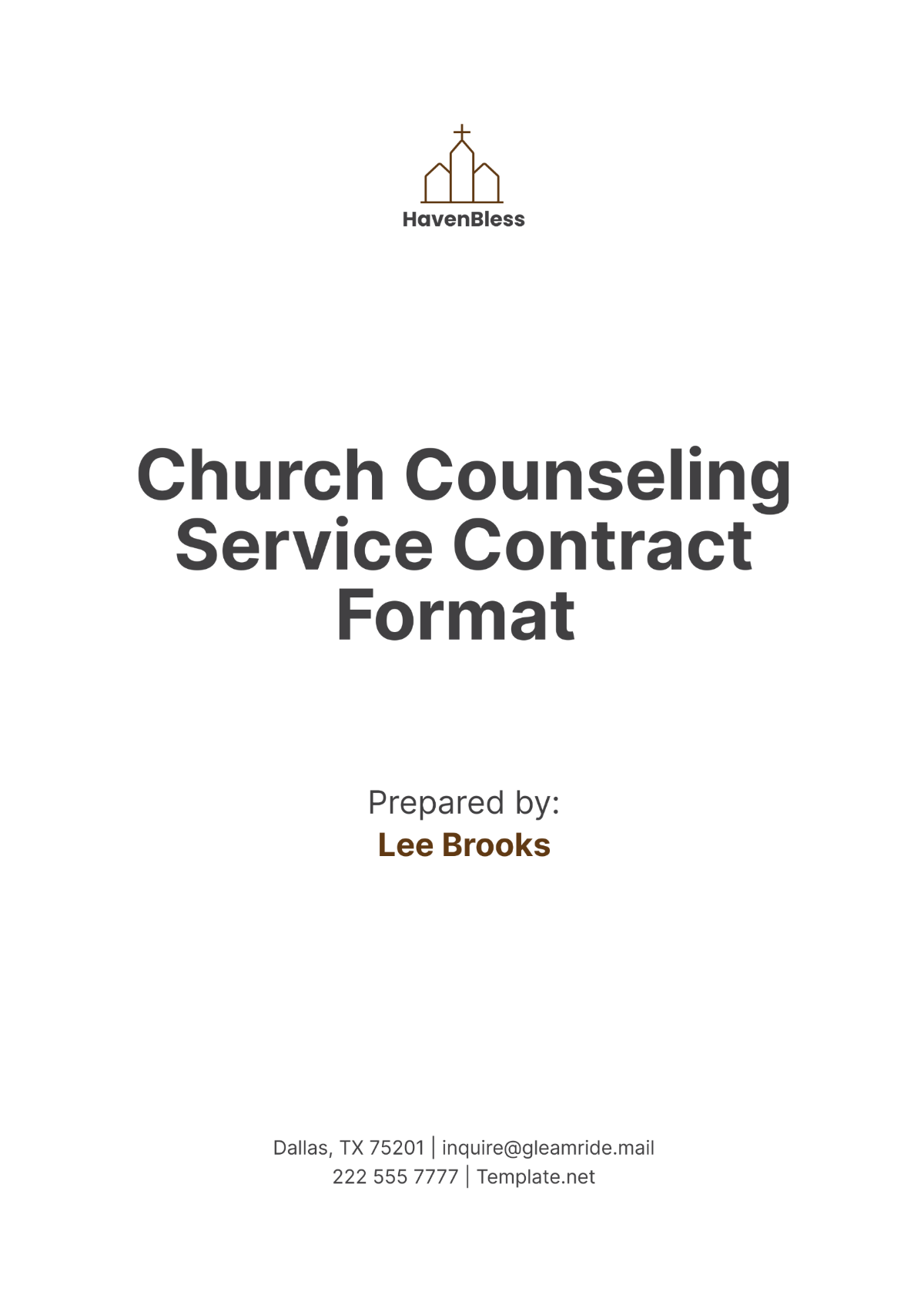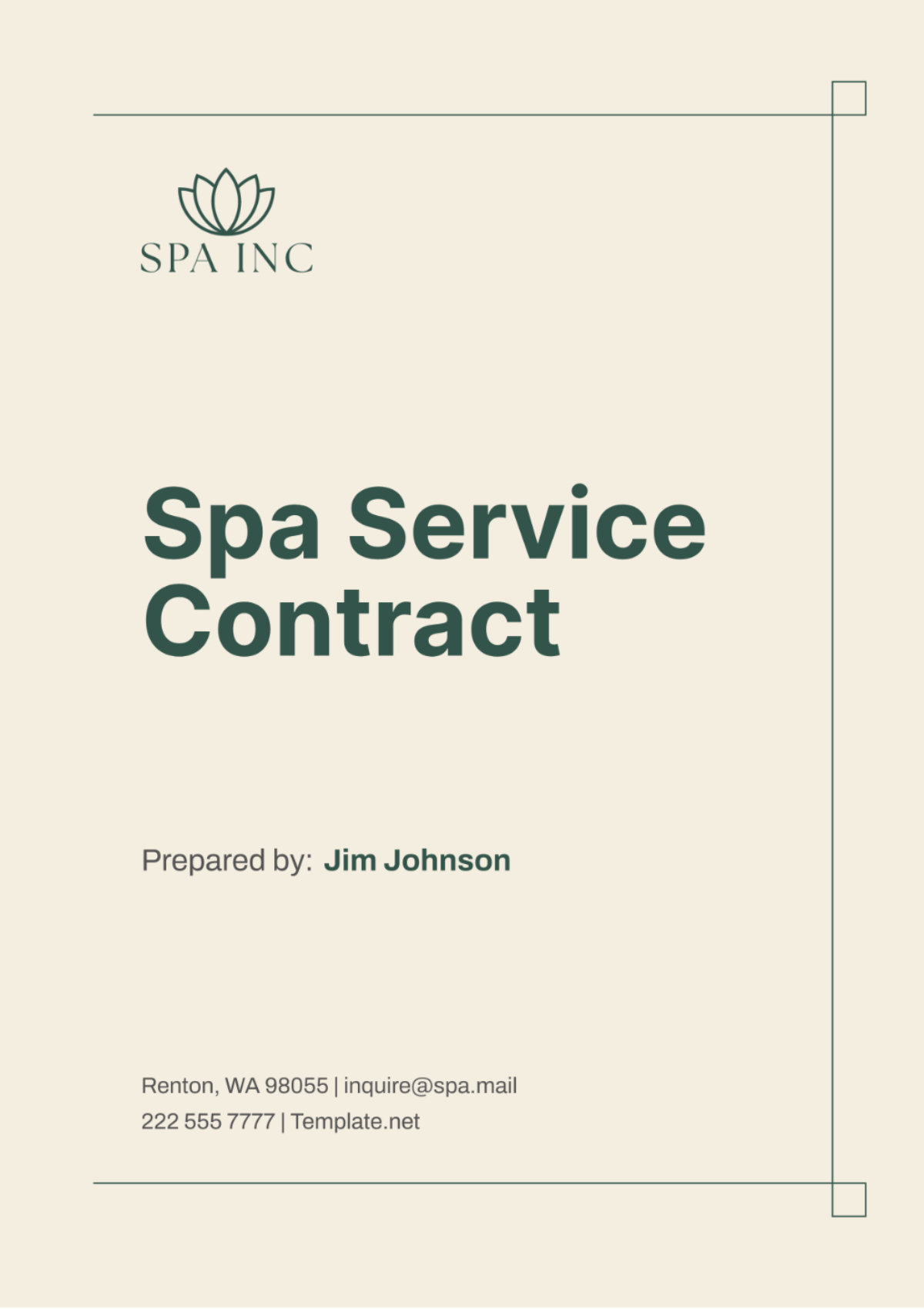Hotel Service Contract
I. The Parties
This Service Contract ("Contract") is made and entered into on [Month Day, Year] ("Effective Date") by and between [Your Company Name] ("Service Provider") with a primary place of business at [Your Company Address] and [Client's Name] ("Client") with a place of business at [Client's Address]. The Service Provider and the Client may be referred to individually as a ("Party") and collectively as the ("Parties").
WHEREAS, the Client desires to engage the Service Provider to provide services related to venue space, catering, and accommodation for the Client's event ("Event");
WHEREAS, the Service Provider represents that it has the skills, qualifications, and expertise required to perform such services effectively;
WHEREAS, both Parties agree to be bound by the terms and conditions as set forth in this Contract;
NOW THEREFORE, in consideration of the mutual covenants and promises herein contained, the Parties agree as follows:
II. Services to be Provided
The Service Provider agrees to provide the following services collectively referred to as the (“Services”):
A. Venue Space Rental
Event Venue: The Service Provider shall make available suitable venue space for the Client’s Event. The venue shall include necessary amenities such as seating arrangements, audio-visual equipment, and climate control.
Layout and Setup: The Service Provider shall assist in planning the layout of the venue, including stage placement, seating arrangements, and any additional requirements specified by the Client.
Event Coordination: The Service Provider shall coordinate with the Client to ensure smooth execution of the Event, including timely setup, breakdown, and adherence to safety regulations.
B. Catering
Menu Selection: The Service Provider shall offer a diverse menu for the Event, including appetizers, main courses, desserts, and beverages. The menu options shall be discussed and finalized with the Client.
Food Preparation and Presentation: The Service Provider shall prepare and present the selected menu items with attention to quality, taste, and aesthetics.
Dietary Restrictions: The Service Provider shall accommodate dietary restrictions or special requests from the Client or Event attendees.
III. Payment Terms
A. Deposit
Upon Signing: Upon signing this Contract, the Client agrees to submit a deposit of [$3,000]. The deposit serves as a commitment to secure the Services provided by the Service Provider. This amount ensures that the Event venue space, catering, and accommodation are reserved exclusively for the Client. The deposit is non-refundable and will be deducted from the total contract amount.
Acknowledgement: The Service Provider acknowledges the importance of timely payment and will promptly confirm receipt of the deposit. By fulfilling this requirement, the Client demonstrates their commitment to the successful execution of the Event.
B. Remaining Balance
Amount: The remaining balance of [$7,000] is due on or before the Event date. This balance covers the outstanding cost of the Services provided by the Service Provider. The Client shall settle the payment through the agreed-upon payment method (e.g., wire transfer, credit card, or other specified means).
Detailed Invoice: The Service Provider will provide an invoice detailing the services rendered, including any additional charges incurred during the Event. The Client’s prompt payment ensures the seamless continuation of the Event, allowing guests to enjoy the venue, catering, and accommodation without interruption.
IV. Term and Termination
The duration of this Contract shall commence on the Effective Date and shall continue until the conclusion of the Event on [Month Day, Year]. During this period, both Parties shall fulfill their obligations as outlined in this Contract. However, either Party may terminate this Contract under the following conditions:
A. Termination Notice
Notice Period: Either Party may terminate this Contract by providing written notice to the other Party at least [30] days in advance. This advance notice allows for proper planning and ensures a smooth transition.
Termination for Cause: Termination may occur immediately if either Party materially breaches any term of this Contract. Such breach may include failure to provide agreed-upon services, violation of safety regulations, or non-compliance with payment terms.
B. Deposit Retention
In the event of termination, the Service Provider shall be entitled to retain the deposit made by the Client. The deposit serves as compensation for reserving the venue space, catering, and accommodation exclusively for the Client. The Service Provider’s right to retain the deposit is essential to cover administrative costs and potential loss of business due to the cancellation. This includes preparing and serving high-quality food and beverages, adhering to agreed-upon menus, and ensuring appealing presentation.
V. Responsibilities of the Service Provider
The Service Provider shall diligently fulfill the following responsibilities:
A. Venue Management
Availability and Condition: The Service Provider shall ensure that the venue is available, clean, and in good working condition for the Event dates. This includes maintaining proper lighting, ventilation, and safety measures.
Timely Setup and Breakdown: The Service Provider shall coordinate with the Event organizers to set up the venue promptly before the Event and dismantle it efficiently afterward.
B. Catering Services
Quality and Presentation: The Service Provider shall provide catering services in a timely and professional manner. This includes preparing and serving high-quality food and beverages, adhering to agreed-upon menus, and ensuring appealing presentation.
Guest Satisfaction: The Service Provider shall prioritize guest satisfaction by addressing any dietary restrictions, allergies, or special requests. Courteous and attentive service during meal times contributes to a positive overall experience.
C. Accommodations
Comfort and Cleanliness: The Service Provider shall ensure that the accommodations (hotel rooms) meet the agreed-upon standards. Cleanliness, comfortable bedding, and essential amenities are crucial for guest satisfaction.
Check-In and Check-Out: The Service Provider shall facilitate smooth check-in and check-out procedures for guests, minimizing any inconvenience during their stay.
VI. Responsibilities of the Client
A. Guest List Management
Complete Guest List: The Client shall provide a complete and accurate guest list for accommodations. This list should include the names of all individuals who will be staying at the hotel during the Event. Timely submission of the guest list ensures efficient check-in procedures and a seamless experience for attendees.
Special Requests: If there are any specific requirements or preferences (such as room preferences, accessibility needs, or dietary restrictions), the Client shall communicate these details to the Service Provider in advance. Clear communication allows the hotel staff to cater to individual needs effectively.
Updates and Changes: In case of any changes or additions to the guest list, the Client shall promptly inform the Service Provider. Flexibility in managing the guest list ensures that accommodations are allocated appropriately.
B. Payment Obligations
Adherence to Payment Schedule: The Client shall make all payments as specified in this Contract. Timely payment of the remaining balance ensures that the Services are provided without interruption. Failure to adhere to the payment schedule may result in delays or cancellation of services.
Deposit Retention: The Client acknowledges that the deposit made upon signing the Contract is non-refundable. The Service Provider retains the deposit to cover administrative costs and potential loss of business due to reservation commitments.
C. Compliance with Hotel Policies
Event Policies: The Client shall abide by all hotel policies during the Event period. These policies may include rules related to noise levels, smoking, alcohol consumption, and safety protocols. Compliance ensures a harmonious experience for all guests and maintains the reputation of the hotel.
Guest Behavior: The Client is responsible for the behavior of their guests. Any disruptive or inappropriate conduct may result in intervention by hotel staff or, in extreme cases, eviction from the premises. The Client shall communicate these guidelines to their guests.
VII. Limitation of Liability
Both Parties acknowledge the importance of clarifying their respective liabilities and agree to the following terms:
A. Indirect Damages
Definition: Neither Party shall be held liable for any indirect damages arising out of or in connection with this Contract. Indirect damages include those that are not directly caused by a Party’s actions but result as a consequence of the contractual relationship.
Examples
2.1. Lost profits due to business interruption during the Event.
2.2. Reputational harm resulting from unforeseen circumstances related to the Services.
B. Incidental Damages
Definition: Incidental damages refer to minor losses or inconveniences suffered by either Party due to the execution of this Contract. These damages are typically unforeseeable and arise incidentally during the course of business.
Examples
2.1. Minor delays in service delivery.
2.2. Temporary inconvenience caused by maintenance work at the venue.
C. Special Damages
Definition: Special damages are specific losses that can be directly attributed to a breach of contract. These damages are unique to the circumstances of the Event and may vary based on individual situations.
Examples
2.1. Costs incurred due to last-minute changes in the Event schedule.
2.2. Expenses related to emergency repairs during the Event.
D. Consequential Damages
Definition: Consequential damages are those that result from a Party’s failure to perform its obligations under the Contract. These damages extend beyond the immediate transaction and have a lasting impact.
Examples
2.1. Financial losses incurred by the Client due to the Service Provider’s failure to provide essential services.
2.2. Legal fees resulting from disputes arising from this Contract.
VIII. Indemnification
Both Parties recognize the importance of protecting each other’s interests and agree to the following terms regarding indemnification:
A. Indemnification Obligations
Definition: Indemnification involves one Party assuming responsibility for certain risks and liabilities arising from the performance of this Contract. The indemnifying Party agrees to defend, indemnify, and hold harmless the other Party.
Scope of Indemnification
2.1. The indemnifying Party shall cover any and all claims, liabilities, damages, losses, or expenses incurred by the other Party.
2.2. These claims may arise due to the negligent or willful acts or omissions of the indemnifying Party or its agents.
B. Claims Covered
Legal Costs: The indemnifying Party shall bear the reasonable attorneys’ fees and costs incurred by the other Party in defending against any claims related to this Contract.
Third-Party Claims: If a third party asserts a claim against either Party based on actions related to the Services provided, the indemnifying Party shall step in to address the claim promptly.
C. Exceptions
Exclusions: The indemnification obligation does not extend to claims resulting from:
1.1. Acts or omissions outside the scope of this Contract.
1.2. Force majeure events beyond the control of either Party.
1.3. Violations of laws or regulations by the indemnified Party.
Mitigation: The indemnified Party shall take reasonable steps to mitigate damages and promptly notify the indemnifying Party of any claims.
D. Prompt Action
Notice: Upon becoming aware of any potential claim, the indemnified Party shall promptly notify the indemnifying Party. Timely communication allows for effective defense and resolution.
Cooperation: Both Parties shall cooperate fully in investigating and defending against any claims. This includes providing necessary information, documents, and access to relevant personnel.
IX. Force Majeure
Both Parties recognize that certain events may occur beyond their control, affecting the performance of this Contract. In such cases, neither Party shall be held liable for any failure or delay in performance. The following provisions apply:
A. Definition of Force Majeure
Scope: Force majeure refers to events or circumstances that are unforeseeable and occur without fault or negligence on the part of either Party.
Examples
2.1. Acts of God (e.g., earthquakes, floods, hurricanes).
2.2. Natural disasters (e.g., wildfires, tsunamis).
2.3. Terrorism or civil unrest.
2.4. Acts of government (e.g., regulatory changes, travel restrictions).
2.5. Shortages in materials or supplies (e.g., due to unforeseen market conditions).
B. Impact on Performance
Non-Liability: Neither Party shall be liable for any failure or delay in performance directly caused by force majeure events.
Mitigation: The affected Party shall take reasonable steps to mitigate the impact of force majeure events and promptly notify the other Party of any such occurrence.
C. Continuation of Contract
Suspension: During force majeure events, the Contract shall be temporarily suspended until normal conditions are restored.
Extension: The Parties agree to extend the Contract duration by the duration of the force majeure event, allowing for necessary adjustments.
D. Good Faith Efforts
Cooperation: Both Parties shall cooperate in addressing force majeure events. This includes sharing relevant information and exploring alternative solutions.
Documentation: The affected Party shall maintain records documenting the occurrence and impact of force majeure events. terrorism, acts of government, and shortages in materials or supplies.
X. Governing Law
A. Legal Framework
The legal framework governing this Contract shall be based on the laws of [State Name]. Both Parties agree to abide by the legal provisions of this jurisdiction in any matters related to the interpretation, performance, or enforcement of this Contract.
B. Applicable Laws
All aspects of this Contract, including its formation, validity, and performance, shall be subject to the laws of [State Name]. The Parties acknowledge the importance of legal consistency and predictability within this jurisdiction.
C. Dispute Resolution
In the event of any disputes arising from this Contract, the Parties agree to resolve them through legal proceedings within the jurisdiction of [State Name]. This ensures a fair and efficient process for addressing disagreements.
XI. Severability
A. Validity of Remaining Provisions
Preserving Contract Integrity: If any provision within this Contract is declared invalid or unenforceable by a court of competent jurisdiction, the remaining provisions shall remain in force. This ensures that the overall agreement remains intact despite the specific issue.
Court Determination: The court with appropriate jurisdiction will assess the validity of the provision in question. If it is found lacking, the other provisions will continue to apply.
Avoiding Collapse: By allowing the rest of the contract to stand, both parties can continue their business relationship without disruption.
B. Court Jurisdiction
Legal Proceedings: The determination of validity or enforceability typically occurs through legal proceedings. The court’s decision is binding.
Applicable Jurisdiction: The court with jurisdiction over the matter will handle any disputes related to the contract.
C. Preserving the Contract
By preserving the remaining provisions, the contract remains effective. Parties can still rely on its terms for their business interactions.
XII. Notices
A. Written Notices
Formal Communication: All notices required under this Contract must be in writing. This ensures clarity and provides a record of communication.
Documentation: Written notices create a paper trail, which is essential for legal purposes and maintaining transparency.
B. Addresses of the Parties
Specified Addresses: The contract includes the addresses of both parties. These addresses serve as the designated points for sending notices.
Updates: If either party changes their address during the contract term, they must promptly notify the other party in writing.
C. Alternative Addresses
Flexibility: Parties may use an address other than the one specified in the contract if they mutually agree. This flexibility allows for practical adjustments.
Written Agreement: Any alternative address must be communicated in writing to ensure both parties are aware of the change.
XIII. Entire Agreement
A. Contract Scope
Comprehensive Agreement: This section emphasizes that the entire contract constitutes the agreement between the parties. It encompasses all terms, conditions, and obligations related to the hotel services.
Superseding Prior Agreements: Any prior verbal or written agreements, understandings, or representations are overridden by this comprehensive contract. Parties should rely solely on the terms outlined here.
B. Amendments and Modifications
Written Changes Only: To modify any aspect of this contract, both parties must adhere to a strict process. Amendments or modifications can only occur in writing.
Signatures Required: Any changes must be signed by authorized representatives from both parties. This ensures clarity and prevents misunderstandings.
Avoid Verbal Agreements: Parties should avoid relying on verbal agreements or informal discussions. The written contract is the sole reference for their rights and responsibilities.
XIV. Signatures
IN WITNESS WHEREOF, the Parties have executed this Service Contract as of the date first above written.
Service Provider

[Authorized Representative Name]
[Your Company Name]
Date: [Month Day, Year]
Client

[Client's Name]
Date: [Month Day, Year]


















